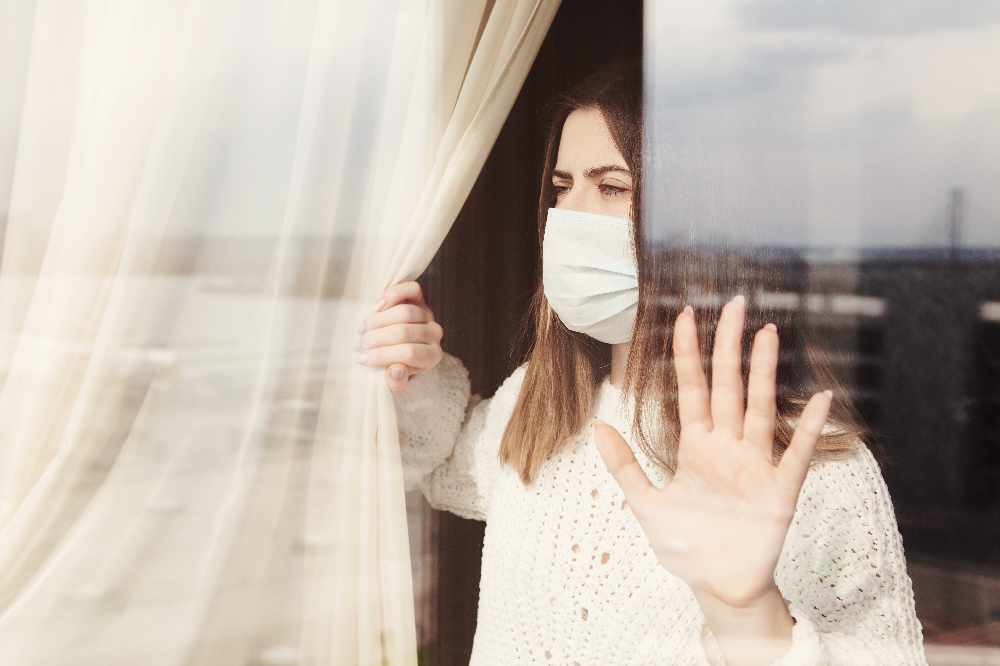
'Be prepared in case you need to self-isolate' -that's the message from the Isle of Wight Council in the week it became law for people to self-isolate if they test positive for coronavirus or are contacted by the test and trace service.
To support the community, the council has produced a self-isolation guide — an online toolkit containing advice, support and signposting information to ensure residents are well prepared.
Council Leader, Dave Stewart, said:
"We know self-isolation isn’t easy but it is vitally important people do take the time to make a plan in case they are ever asked to self-isolate.
"How will I access food? Who will collect my medication? Who will walk the dog? These are the kinds of questions residents need to consider and why good preparation will help ease some of the concerns they may have.
"Our self-isolation guide can help by providing useful telephone numbers for local support and delivery services, website links for further assistance as well as top tips and general advice on staying healthy and active at home while self-isolating.
"I would urge all residents to download it now."
Residents will need to self-isolate if they:
- Have any symptoms of coronavirus (a high temperature, a new, continuous cough or a loss or change to your sense of smell or taste)
- Have tested positive for coronavirus — this means you have coronavirus
- Live with someone who has symptoms (if the person subsequently is confirmed negative, there is no need to self-isolate as a contact) or has tested positive
- Someone in your support bubble has symptoms (if the person subsequently is confirmed negative, there is no need to self-isolate as a contact) or has tested positive
- Are told by NHS Test and Trace that you’ve been in contact with a person with coronavirus
- Are returning from a country that does not have an air-bridge agreement
If any of these things happen to you, you must stay at home because this helps to stop the virus from spreading to other people.
It is more than likely you will have little or no notice that you must self-isolate.
Self-isolation is not the same as lockdown — it is more restrictive and it will help if you have a plan.
The legal duty to self-isolate came into force on Monday (28) with fines starting at £1,000 and increasing up to £10,000 for repeat offenders or serious breaches.
People who have received a positive test must isolate for ten days after displaying symptoms or their test date if they do not have symptoms, while members of their household must isolate for 14 days.
You must:
- Not go to work, school or public places – work from home if you can
- Not go on public transport or use taxis
- Not go out to get food and medicine
- Not have visitors in your home, including friends and family – except for people providing essential care
- Not go out to exercise
Download the council's useful self-isolation planning guide to help you and your household to prepare if you must self-isolate in the future.


 Family Pays Tribute To Paul Hart Following Fatal Newport Collision
Family Pays Tribute To Paul Hart Following Fatal Newport Collision
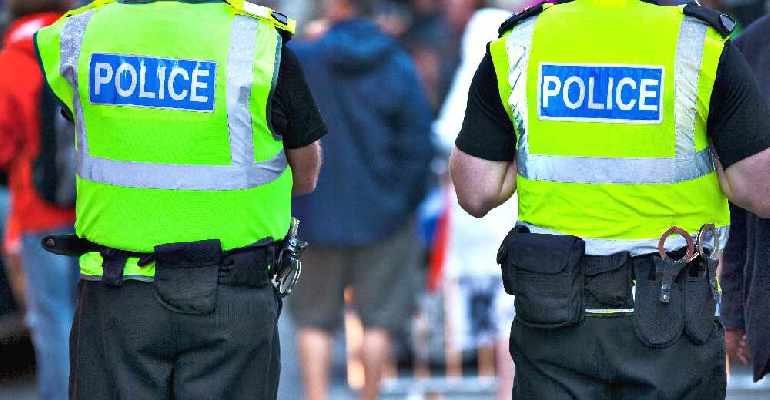 Teenager Sentenced For Planning Isle Of Wight Festival Terrorist Attack
Teenager Sentenced For Planning Isle Of Wight Festival Terrorist Attack
 Isle Of Wight Gin Company Wins Medal At 2024 London Spirits Competition
Isle Of Wight Gin Company Wins Medal At 2024 London Spirits Competition
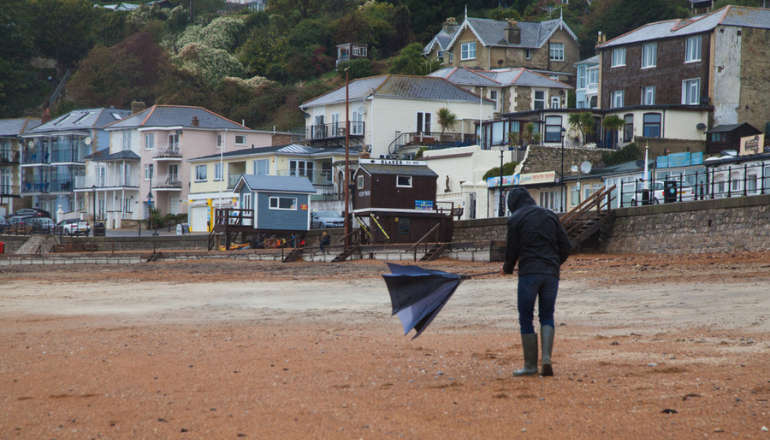 Yellow Weather Warning Issued For Isle Of Wight
Yellow Weather Warning Issued For Isle Of Wight
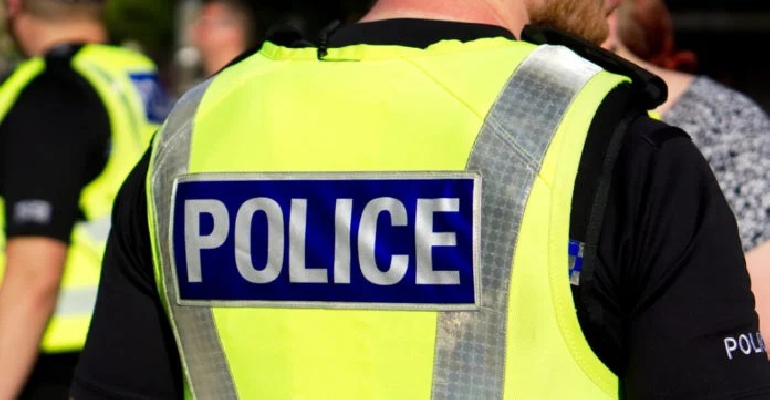 Police Confirm Bembridge Beach Discovery 'Not Human Remains' Despite Reports To Contrary
Police Confirm Bembridge Beach Discovery 'Not Human Remains' Despite Reports To Contrary
 Police Investigation Updated Following Discovery Of Body
Police Investigation Updated Following Discovery Of Body
 Spitfires To Soar As Part Of D-Day Commemoration At IW Armed Forces Day
Spitfires To Soar As Part Of D-Day Commemoration At IW Armed Forces Day
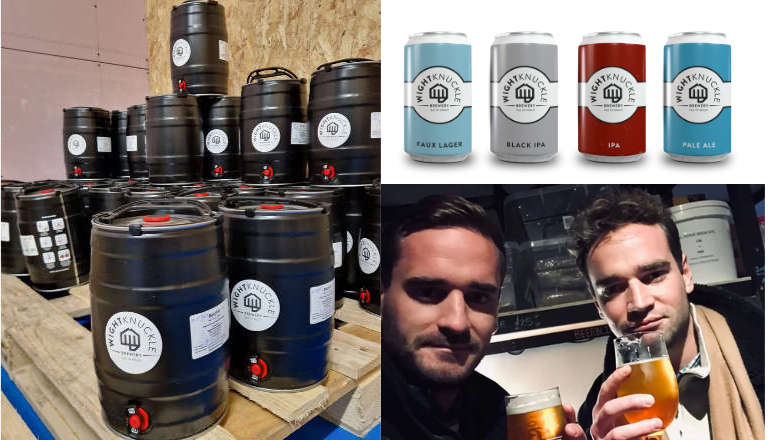 Another Accolade For Wight Knuckle Brewery At National Independent Beer Awards
Another Accolade For Wight Knuckle Brewery At National Independent Beer Awards
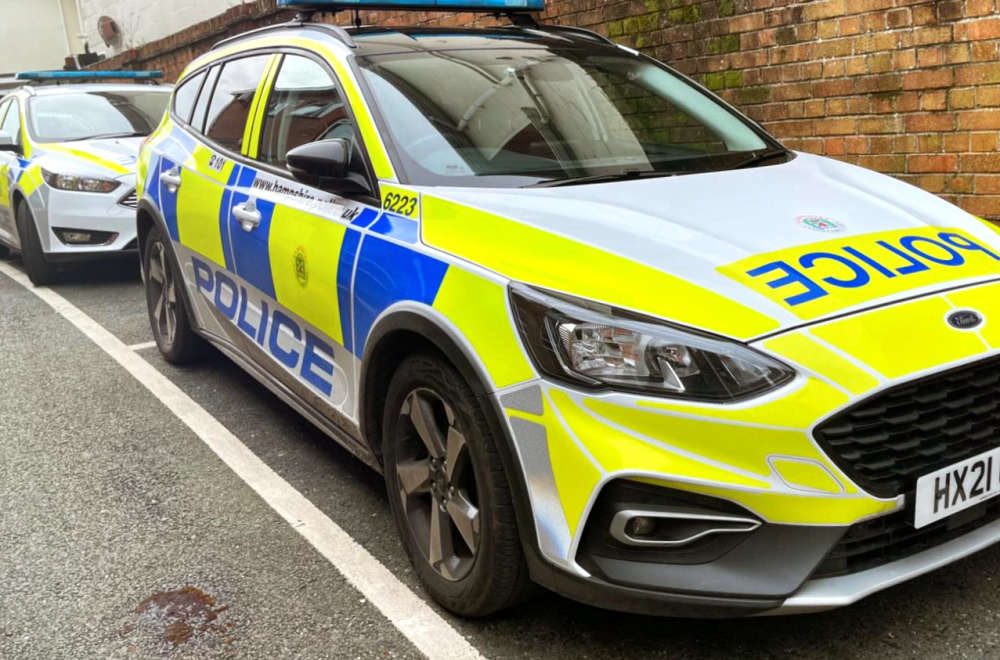 Uninsured, Unlicensed And Unruly: Man Charged Following Newport Collision
Uninsured, Unlicensed And Unruly: Man Charged Following Newport Collision
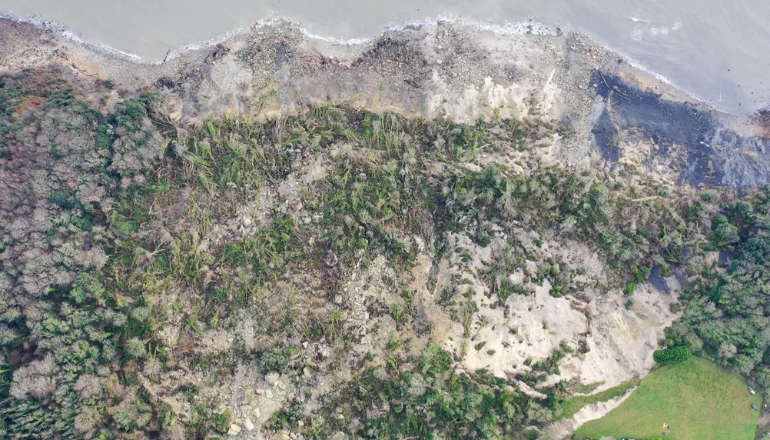 Monitoring Equipment To Be Installed On Leeson Road Next Week
Monitoring Equipment To Be Installed On Leeson Road Next Week
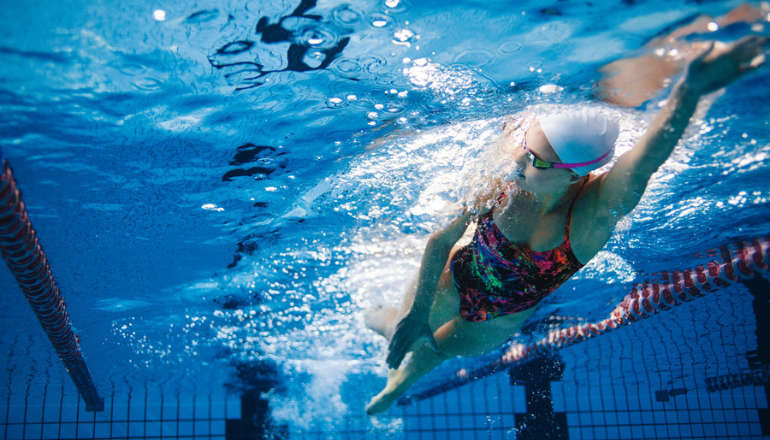 Free Swimming Sessions Available For Isle Of Wight Residents
Free Swimming Sessions Available For Isle Of Wight Residents
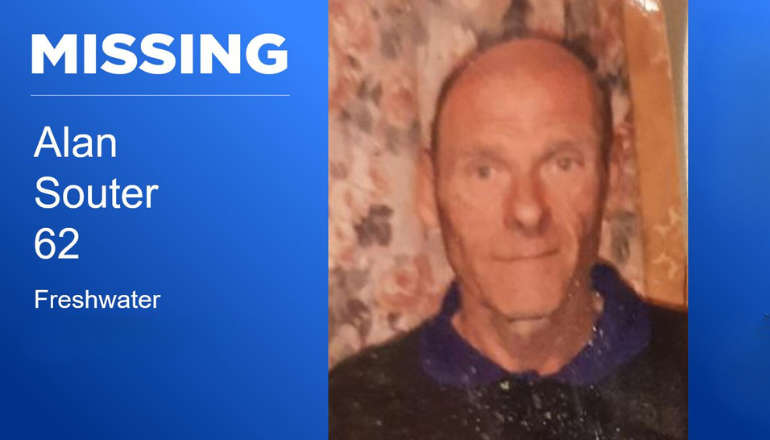 MISSING: Alan Souter, 62, From Freshwater
MISSING: Alan Souter, 62, From Freshwater
 More Than 2,500 Vehicles Seized Across Hampshire And Isle Of Wight
More Than 2,500 Vehicles Seized Across Hampshire And Isle Of Wight
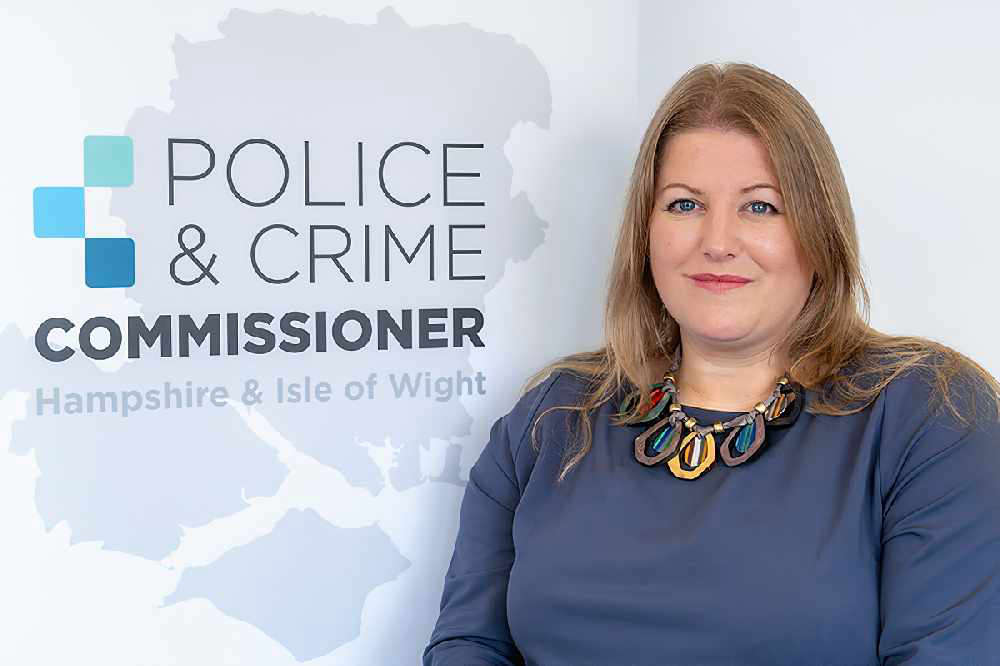 Hampshire And Isle Of Wight Police And Crime Commissioner Candidates Revealed
Hampshire And Isle Of Wight Police And Crime Commissioner Candidates Revealed
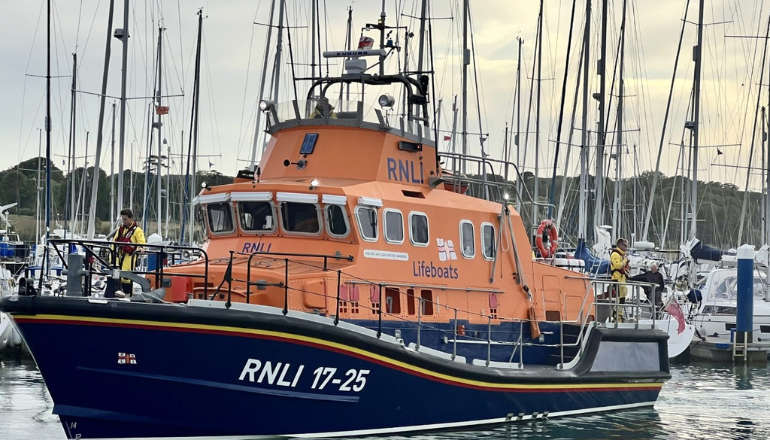 Grounded Yacht Leads To Cowes Lifeboat Launching
Grounded Yacht Leads To Cowes Lifeboat Launching
 MP Asks Pharmacy To Expand Its Blister Pack Recycling Scheme
MP Asks Pharmacy To Expand Its Blister Pack Recycling Scheme
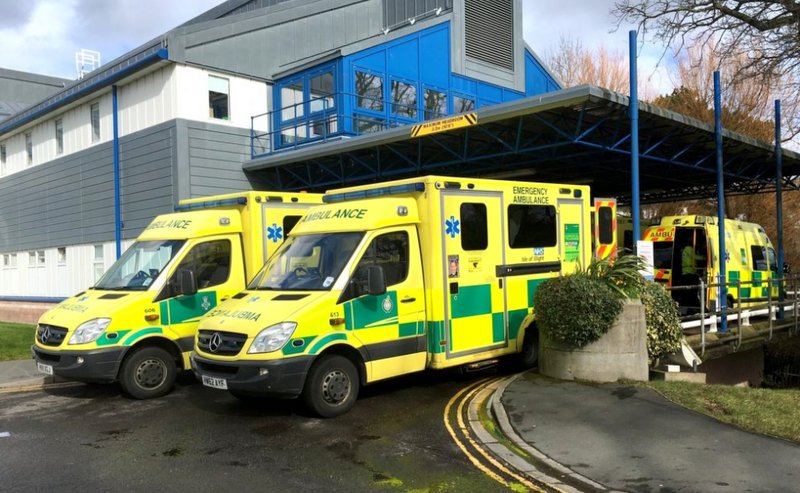 Cyclist In Her 70s Taken To Hospital Following Crash
Cyclist In Her 70s Taken To Hospital Following Crash
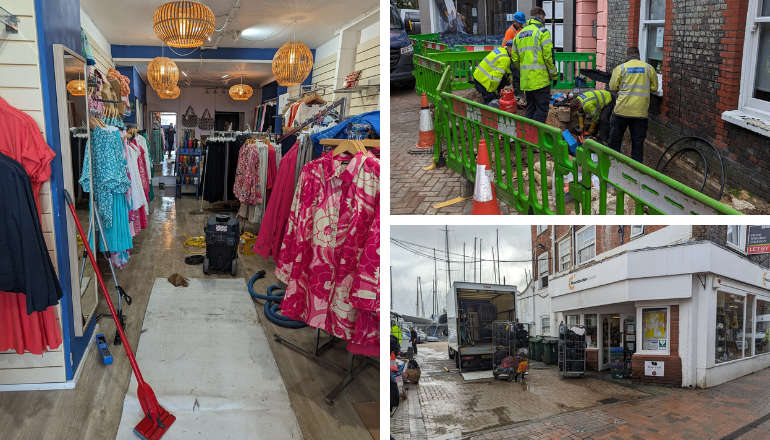 Clean Up Operation For Cowes High Street Following Flooding
Clean Up Operation For Cowes High Street Following Flooding


